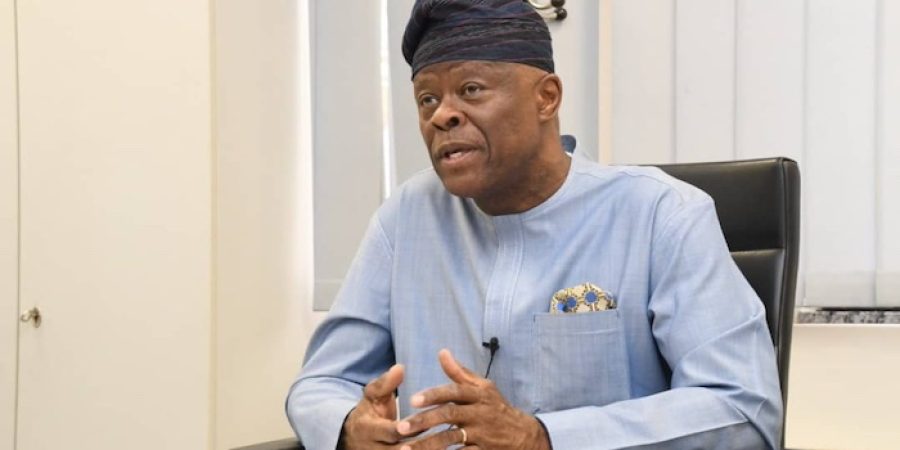In a move to enhance transparency, block revenue leakages, and improve trade efficiency, the federal government has reaffirmed its commitment to the immediate implementation of the National Single Window (NSW) initiative, a flagship policy of President Bola Tinubu’s administration.
The Minister of Finance and Coordinating Minister of the Economy, Mr. Wale Edun, disclosed this on Monday during an appearance before the National Assembly Joint Committee on Customs and Tariffs.
He stated that the government was determined to modernise trade operations, improve customs revenue, and bring informal transactions into the formal economy.
Edun said, “We will soon implement one of the legacy projects of His Excellency, Mr. President, and that is the National Single Window. It will address trade facilitation, port community systems, and block leakages in revenue. This system will bring speed and efficiency to international trade transactions and complement other economic reforms.
“The National Single Window is a digital trade facilitation platform that aims to integrate all government agencies involved in the trade process. When fully operational, it is expected to significantly reduce processing time for cargo clearance, enhance transparency, and increase government revenue.”
According to the minister, improving customs efficiency is critical to shoring up non-oil revenue.
He noted that the Nigerian Customs Service (NCS) remains a vital contributor to the Federation Account, and increasing its performance is a national priority.
He said, “Customs revenue is significant and remains a major contributor to both federal and state governments. We are working towards achieving higher revenue through more efficient processes and by blocking loopholes and leakages.”
He also raised concerns about Nigeria’s trade settlement system, which he described as burdened by informal transactions and inefficiencies.
The minister hinted at reforms that may allow imports and even crude oil sales to be settled in naira, a move that could reduce foreign exchange pressure on the economy.
“Many of our trade transactions are conducted outside formal channels. We are working on reforms that will improve the system, including the possibility of settling imports and even crude oil sales in naira,” he said.
During the session, Senator Issa Jibrin, chairman of the National Assembly Joint Committee on Customs and Tariffs, called for the immediate implementation of a statutory 4 per cent Free On Board (FOB) charge to fund customs operations, as provided by law.
Jibrin also demanded the prompt release and utilisation of available funds for customs modernisation projects.
He expressed frustration over delays in project approvals, citing over N50 billion worth of NCS projects awaiting Federal Executive Council (FEC) clearance, some pending since August 2023.
“We passed a resolution that the Nigerian Customs Service should stop collection of 1 per cent CISS and 7 per cent cost of collection as these are not backed by the parliament. We also want a monthly report of the implementation of the 4 per cent FOB,” Jibrin stated.
The lawmakers accused the Finance Ministry of holding up critical approvals and demanded urgent explanations.
“Approvals are pending in his office, and some of the documents have been there since August last year. I don’t believe there hasn’t been any response from his office,” Jibrin said.
Another issue that came to the fore was the rise of youth-led digital payment systems that operate outside the scrutiny of financial regulators.
The minister voiced concern about the implications for national revenue and the economy at large.
Edun said, “There is a growing segment of youth-led digital payments escaping the financial regulatory net.
We must work towards integrating these into the formal system to ensure effective monitoring and proper taxation.”
Also addressing the lawmakers, the Comptroller-General of the Nigerian Customs Service (NCS) Adewale Adeniyi, clarified that rice importation remains restricted, not banned entirely.
“Rice is not 100 per cent banned. It is only restricted. However, importation through the land borders is not allowed,” he explained.
The National Assembly adopted a resolution calling for the immediate implementation of the 4 per cent FOB charge and improved reporting mechanisms.
The lawmakers also urged the Ministry of Finance to accelerate approvals for pending customs modernisation projects.
Sunday Aborisade
Follow us on:


